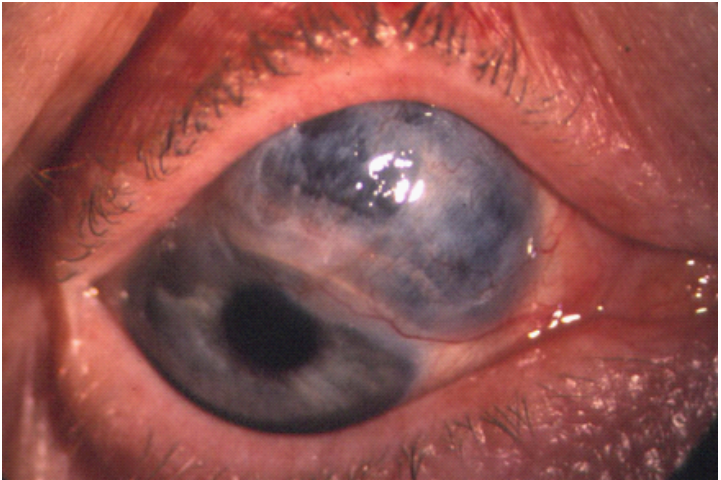A 35-year-old man has an 8-month history of fluctuating deafness, fullness and buzzing/ringing in both his ears. He also describes episodes of vertigo, where the room is spinning around him and he feels extremely nauseated. Rinne’s test demonstrates that air conduction is better than bone conduction in both ears and Weber’s test does not show lateralisation.
What is the most likely diagnosis?
- Benign paroxysmal positional vertigo
- Acoustic neuroma
- Labyrinthitis
- Otitis media
- Meniere’s disease
Answer
Right answer is option 5
Explanation
Meniere’s disease is a disorder of the inner ear, affecting hearing and balance. The cause is unknown but thought to be due to a disorder in endolymph production and/or absorption.
The disease is characterised by:
- Deafness (sensorineural)
- Tinnitus
- Vertigo
25% of cases are bilateral. If suspecting this diagnosis, the patient needs an ENT referral and an MDT approach to management. Some patients may need hospital admission for fluids and labyrinthine sedatives if vertigo and nausea are severe. Prochlorperazine can be used as a labyrinthine sedative/antiemetic and often forms a crucial part of management. A trial of betahistine can be used to reduce the frequency of attacks and the severity of hearing loss, tinnitus and vertigo. Meniere’s disease is a long-term condition but it can improve with treatment.
Benign paroxysmal positional vertigo (BPPV) is a disorder arising from a problem in the inner ear. Symptoms are repeated, brief periods of vertigo triggered by changes in the position of the head (often when turning in bed). Nausea is commonly associated. BPPV is one of the most common causes of vertigo. Hearing loss, inner ear fullness and tinnitus are not features of the disease.
Labyrinthitis typically presents with vertigo, nausea and vomiting. It can sometimes also feature hearing loss and tinnitus. It is caused by inflammation The duration typically lasts 3-6 weeks, so it doesn’t fit well with the longer duration of symptoms in this case. The condition typically arises at the time or just after an individual has been unwell with a virus.
Otitis media typically presents with unilateral conductive hearing loss, ear pain, fever and sometimes discharge (if the tympanic membrane ruptures).
Acoustic neuroma is a benign tumour arising from the myelin sheath of the vestibulocochlear nerve. Symptoms involve progressive tinnitus, sensorineural hearing loss and vertigo. Facial numbness can occur due to compression of the trigeminal nerve as the tumour enlarges. It is less common than Meniere’s disease (1 in a million vs 15 in 100,000).





